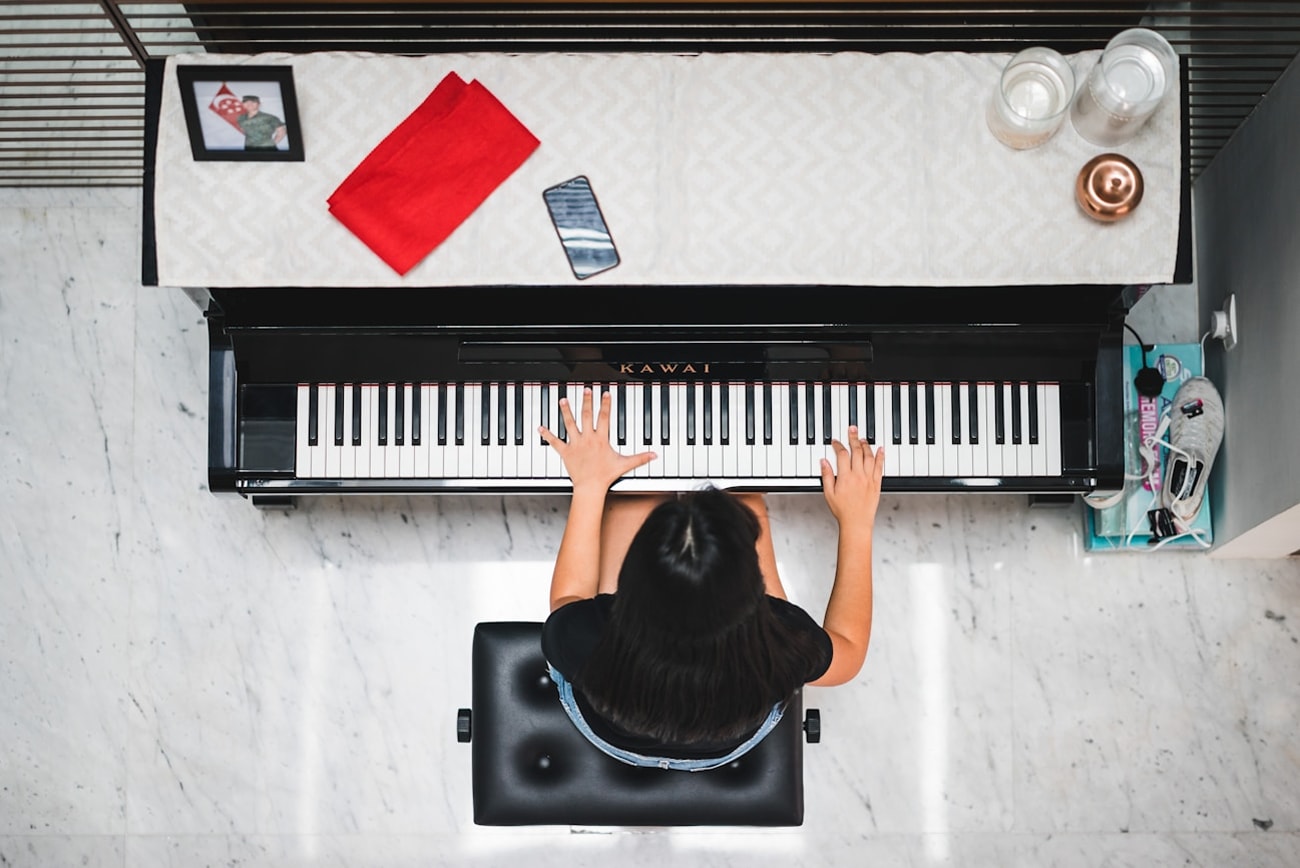5 Common Mistakes Beginner Pianists Make (And How to Avoid Them)

Learning the piano is an exciting and rewarding journey, but beginners often encounter common pitfalls that can slow down progress. At Remote Piano, we want to help you build a strong foundation from the start. Here are five common mistakes that new pianists make—and how you can avoid them.
1. Ignoring Proper Posture and Hand Position
Many beginners overlook the importance of posture and hand positioning. Sitting too close or too far from the piano, slouching, or tensing up can lead to discomfort and even injury over time.
How to Fix It:
- Sit with a straight back and relaxed shoulders.
- Position your bench so your elbows are slightly above the keys.
- Keep your fingers curved and relaxed to allow for smooth movement.
2. Practicing Without a Plan
Simply sitting down and playing random exercises or pieces without a structured plan can lead to slow progress and frustration.
How to Fix It:
- Set specific goals for each practice session (e.g., work on scales, improve a tricky passage, or refine dynamics).
- Divide your practice time between warm-ups, technical exercises, and repertoire.
- Track your progress to stay motivated.
3. Relying Too Much on Memorization Instead of Reading Music
Some beginners learn pieces by ear or memory without developing solid sight-reading skills. While memorization is helpful, relying on it too much can limit your ability to learn new music efficiently.
How to Fix It:
- Practice reading new sheet music regularly, even if it’s simple.
- Try “sight-reading challenges” where you play through unfamiliar pieces at a slow pace.
- Use apps or flashcards to reinforce note recognition.
4. Playing Too Fast Too Soon
It’s tempting to try and play a piece at full speed right away, but this often leads to mistakes, uneven playing, and bad habits.
How to Fix It:
- Start slow and focus on accuracy and control.
- Use a metronome to gradually increase speed.
- Play hands separately before combining them for more challenging sections.
5. Not Listening to Yourself Play
Many students focus on hitting the right notes but forget to listen to the quality of their playing—dynamics, articulation, and expression matter just as much as accuracy.
How to Fix It:
- Record yourself playing and listen back to identify areas for improvement.
- Focus on phrasing and musical expression, not just technical precision.
- Take advantage of Remote Piano’s lesson watch-back feature to review feedback from your instructor.
Learn the Right Way with Remote Piano
Avoiding these common mistakes early on will set you up for long-term success. At Remote Piano, our expert instructors provide personalized guidance to help you develop strong technique, musicality, and confidence. If you’re ready to start learning the right way, book a trial lesson today and experience the difference of online piano instruction done right!
